Latest
How Much Should I Charge for a Gig?
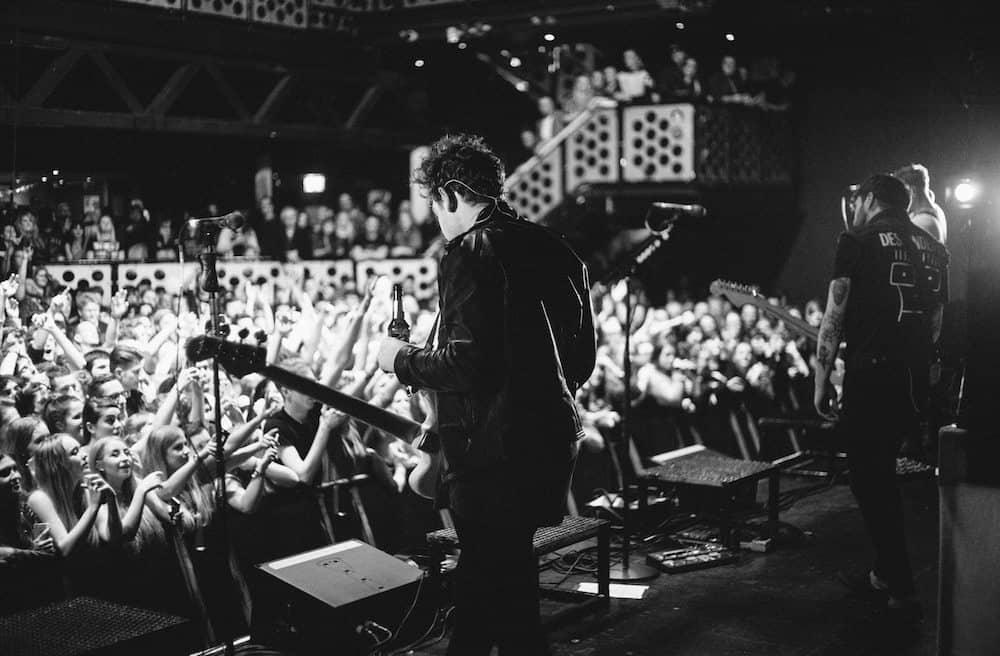

As a musician, you may have heard phrases thrown around such as: ‘that’s a standard fee’; or ‘oh, it’s below MU rates’; or the classic ‘did I charge enough?’ One of the biggest questions musicians ask is, “How much should I charge for a gig?”
The truth is, NO ONE knows how much to charge for a gig. The rates of pay have fluctuated greatly since music’s inception, even more so since the Internet. There are several things that affect how much musicians can charge, some things are within the musician’s control, others are out of our control. The situations outside of our control can sometimes have a knock on effect to what you charge.
Here are a few examples of Unions to look at to get an idea of what they charge. In the UK, The Musicians Union (www.musiciansunion.org.uk) have their own set of rates. Then you have unions for worldwide www.fim-musicians.org and America www.afm.org. As good as all this is, these unions are still independent to their territories, and are used as an indicator, not a rule. They are also not linked, so they have their own individual arrangements to determine charge rates. I could say the rates are fair, but then what are my grounds based on?
The best advice I was given, was ‘start at a million pounds and then haggle your way down to expenses’. As ridiculous as this sounds, the theory is in essence, totally true. We SHOULD (in our own eyes at least) be worth at least £1 million. Unfortunately, budgets don’t always agree and usually, neither does the band or musician’s promo. You have to find a compromise.
There are SO MANY different types of gigs, of all levels, sizes and budgets. And ultimately it comes down to the money available. Along with this, there are so many things you can do as a musician to increase this and your self-worth.
You need to be comfortable with what you are being paid. My advice is: if you do not like the fee, don’t take the gig. We all know it WILL (99% of the time) be filled by SOMEONE (whether the quality is compromised or not) and that’s ok. There is nothing worse than having a musician take a gig for a low fee and then spend the whole time bitching about it. Treat every gig like you’re on top money – be professional. This job is not your normal 9-5 and regardless of how much fun we may have, it is still a job; something the majority of Joe Public are not aware of. You may doubt your worth by being surrounded by ignorant attitudes – never underestimate your location. Worth is all about perception. Just because you change your strings every gig, doesn’t mean your self-worth goes up…
If you are unhappy with the prices, you need to show clients why they should be paying more. I find this is a lot easier to see in bands. However, for individual musicians, online promo, videos, jam nights and solo projects are all great ways to ‘add more strings to your bow’ (just be wary as they may want a single strung bow). With bands, one great way to increase your value is to simply increase your production. If you see an act getting lots of gigs for $1000 (for example) and think you deserve to be paid more and can do better, you will need to put the effort in to show potential clients why they should pay more and not just book another band. It takes time to change perception. There will still be instances when clients will go for the cheaper option. However, I do believe if you stick to your guns the only gigs you will be offered are those in the price band you want. Caving in to lower prices will mean that YOU WILL play for lower prices, and the same artists will offer you the same wage (not all the time, there are some who do stick to their word of ‘when the pay goes up, so will yours’). It’s all starting to become a game of poker, reading people and calling bluffs.
We live in a world where every person with a camera phone is a photographer, everyone who has a friend with said camera phone is a model, and every other person makes the ‘yeah but I can play triangle’ joke. There are numerous open forums on social media calling for last minute musicians and deps, opening up the market to players of all levels and experience that take fees of all kinds. Every gig is different, and it’s up to you whether you think you are compromising your worth by doing these other gigs or whether the potential networking, meeting and playing with other people would be beneficial. If you want to go only go for £500 a gig, only go out for £500 a gig.
So we have a mix of aspiring professionals, professionals, semi-pros, and wannabes. This in itself can make what you think your worth is fluctuate. If you are regularly playing gigs with people that work a 9-5, they are going to have a different attitude to those that work freelance or have chosen this as a full-time profession. Some people might spend more on their gear and maintenance & rehearsals. Different lives, different values. If you are playing a lot of pub shows, to crowds that just want to be entertained, they aren’t going to care about your cool re-harm pattern or the fact the singer just missed the cue and you start the verse 4 bars later than usual. In the same way, if you are on a touring production, you are constantly with like-minded people, all with one task and job in mind. This combined with everyone in the venue working towards one goal (the gig) and then crowds coming to sing along to your songs. That is also going to have an effect on how valuable you think you are. I think a great attribute every player should have, is to adapt to the present playing situation. It can be quite the culture shock going from a long tour, then into pub gigs, or visa versa.
We are constantly mixing with musicians of all levels of training and backgrounds – from PhDs to self taught. In most cases, competing with them for gigs for both booking bands and individual musicians. This can leave our sense of perception warped, which easily happens, and is often not too easy to spot.
We all get it wrong at times, we will sometimes over or under charge for a gig, and the important thing is to suck it up and not sulk about it. Learn from your mistakes instead of repeating them. It’s OK to make mistakes, but one thing that makes us feel better about it, is the self-knowing that you are content with what you’re doing and what the price is and for how much time spent. Constant self doubt comes with the territory, and it can be controlled. If you are on the gig, and it doesn’t feel worth it, don’t do it again. Lessons will be repeated until learned.
So, if you came to this article looking for a definitive answer, a price list or some sort of per year calculation, I am sorry (well I’m not reeeeallly) but that is beyond anyone’s knowledge. And that goes for any artistic lifestyle. Failing all of that, if you are still in doubt and unhappy, every time you get a gig, just match up the time from leaving your house, to getting back in. Calculate how much would you get for minimum wage, and see which is better, bearing in mind, you don’t get paid to travel to most jobs.
Bass Videos
Interview With Bassist Erick “Jesus” Coomes
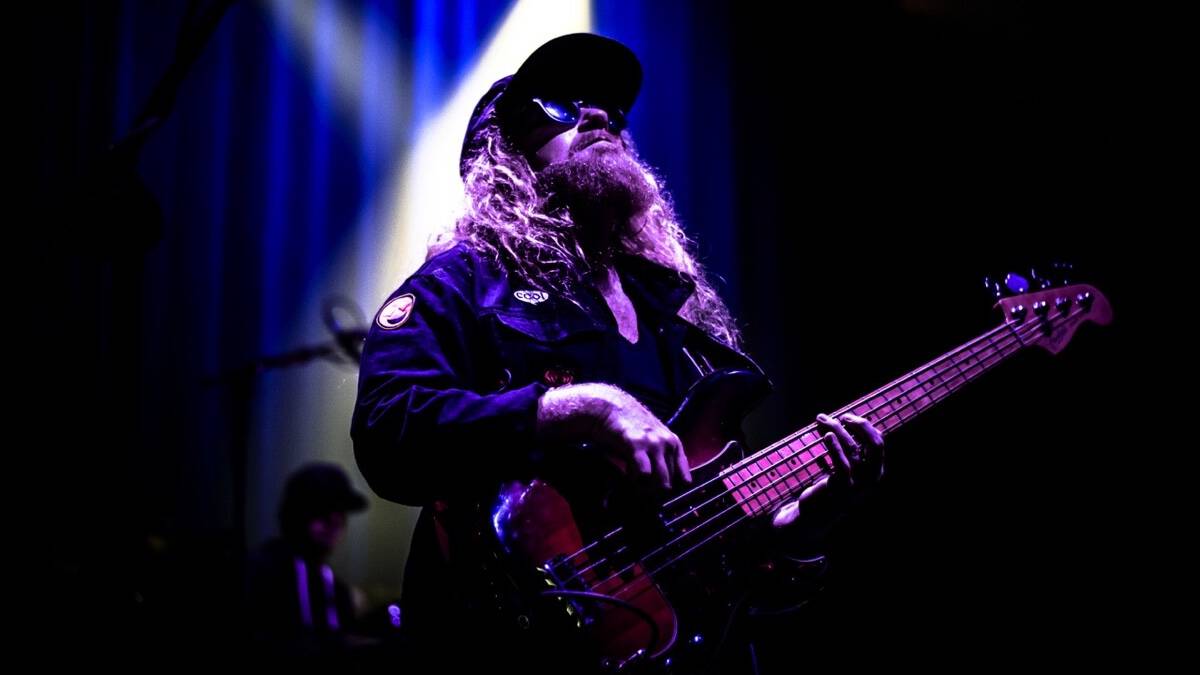
Bassist Erick “Jesus” Coomes…
It is always great to meet a super busy bassist who simply exudes a love for music and his instrument. Erick “Jesus” Coomes fits this description exactly. Hailing from Southern California, “Jesus” co-founded and plays bass for Lettuce and has found his groove playing with numerous other musicians.
Join us as we hear of his musical journey, how he gets his sound, his ongoing projects, and his plans for the future.
Photo, Bob Forte
Featured Videos
Visit Online
www.lettucefunk.com
IG @jesuscsuperstar
FB@jesuscoomes
FB @lettucefunk
Bass Videos
Working-Class Zeros: Episode #2 – Financial Elements of Working Musicians
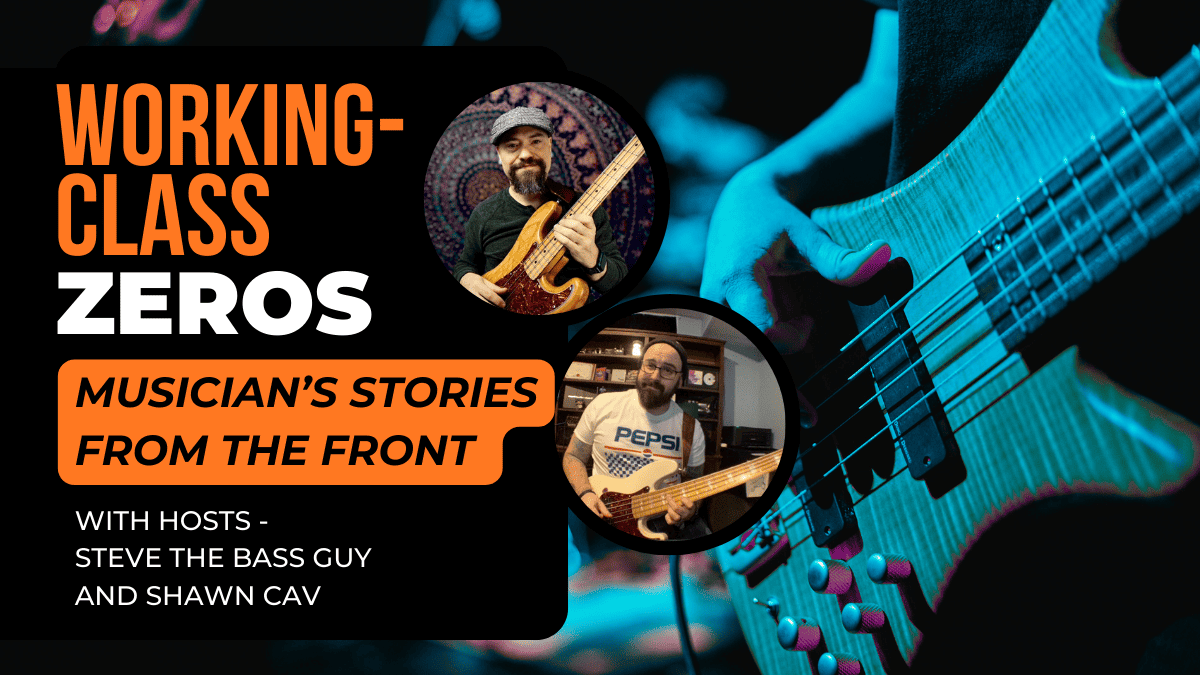
Working-Class Zeros: Episode #2 – Financial Elements of Working Musicians
“These stories from the front are with real-life, day-to-day musicians who deal with work life and gigging and how they make it work out. Each month, topics may include… the kind of gigs you get, the money, dealing with less-than-ideal rooms, as well as the gear you need to get the job done… and the list goes on from there.” – Steve the Bass Guy and Shawn Cav
Latest
This Week’s Top 10 Basses on Instagram
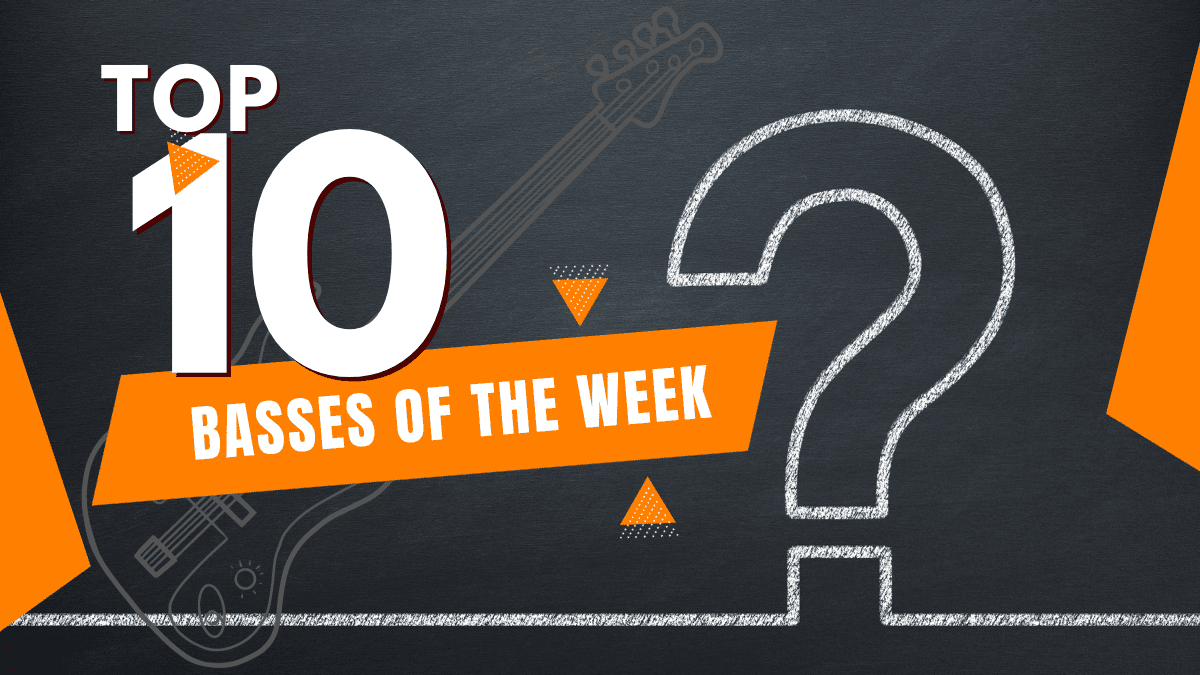
Check out our top 10 favorite basses on Instagram this week…
Click to follow Bass Musician on Instagram @bassmusicianmag
FEATURED @foderaguitars @overwaterbasses @mgbassguitars @bqwbassguitar @marleaux_bassguitars @sugi_guitars @mikelullcustomguitars @ramabass.ok @chris_seldon_guitars @gullone.bajos
Bass CDs
New Album: Jake Leckie, Planter of Seeds
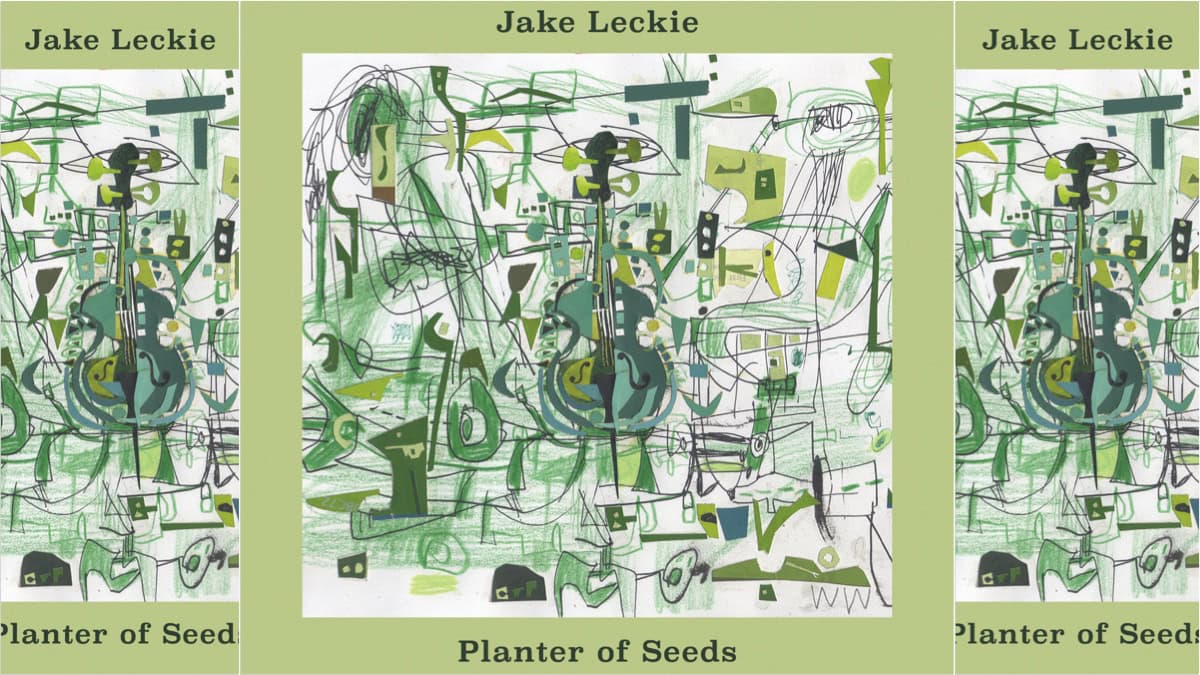
Bassist Jake Leckie and The Guide Trio Unveil New Album Planter of Seeds,
to be released on June 7, 2024
Planter of Seeds is bassist/composer Jake Leckie’s third release as a bandleader and explores what beauty can come tomorrow from the seeds we plant today.
What are we putting in the ground? What are we building? What is the village we want to bring our children up in? At the core of the ensemble is The Guide Trio, his working band with guitarist Nadav Peled and drummer Beth Goodfellow, who played on Leckie’s second album, The Guide, a rootsy funky acoustic analog folk-jazz recording released on Ropeadope records in 2022. For Planter of Seeds, the ensemble is augmented by Cathlene Pineda (piano), Randal Fisher (tenor saxophone), and Darius Christian (trombone), who infuse freedom and soul into the already tightly established ensemble.
Eight original compositions were pristinely recorded live off the floor of Studio 3 at East West Studios in Hollywood CA, and mastered by A.T. Michael MacDonald. The cover art is by internationally acclaimed visual artist Wayne White. Whereas his previous work has been compared to Charles Mingus, and Keith Jarrett’s American Quartet with Charlie Haden, Leckie’s new collection sits comfortably between the funky odd time signatures of the Dave Holland Quintet and the modern folk-jazz of the Brian Blade Fellowship Band with a respectful nod towards the late 1950s classic recordings of Ahmad Jamal and Miles Davis.
The title track, “Planter of Seeds,” is dedicated to a close family friend, who was originally from Trinidad, and whenever she visited family or friends at their homes, without anyone knowing, she would plant seeds she kept in her pocket in their gardens, so the next season beautiful flowers would pop up. It was a small altruistic anonymous act of kindness that brought just a little more beauty into the world. The rhythm is a tribute to Ahmad Jamal, who we also lost around the same time, and whose theme song Poinciana is about a tree from the Caribbean.
“Big Sur Jade” was written on a trip Leckie took with his wife to Big Sur, CA, and is a celebration of his family and community. This swinging 5/4 blues opens with an unaccompanied bass solo, and gives an opportunity for each of the musicians to share their improvisational voices. “Clear Skies” is a cathartic up-tempo release of collective creative energies in fiery improvisational freedom. “The Aquatic Uncle” features Randal Fisher’s saxophone and is named after an Italo Calvino short story which contemplates if one can embrace the new ways while being in tune with tradition. In ancient times, before a rudder, the Starboard side of the ship was where it was steered from with a steering oar. In this meditative quartet performance, the bass is like the steering oar of the ensemble: it can control the direction of the music, and when things begin to unravel or become unhinged, a simple pedal note keeps everything grounded.
The two trio tunes on the album are proof that the establishment of his consistent working band The Guide Trio has been a fruitful collaboration. “Santa Teresa”, a bouncy samba-blues in ? time, embodies the winding streets and stairways of the bohemian neighborhood in Rio de Janeiro it is named for. The swampy drum feel on “String Song” pays homage to Levon Helm of The Band, a group where you can’t always tell who wrote the song or who the bandleader is, proving that the sum is greater than the individual parts. Early jazz reflected egalitarianism in collective improvisation, and this group dynamic is an expression of that kind of inclusivity and democracy.
“The Daughters of the Moon” rounds out the album, putting book ends on the naturalist themes. This composition is named after magical surrealist Italo Calvino’s short story about consumerism, in which a mythical modern society that values only buying shiny new things throws away the moon like it is a piece of garbage and the daughters of the moon save it and resurrect it. It’s an eco-feminist take on how women are going to save the world. Pineda’s piano outro is a hauntingly beautiful lunar voyage, blinding us with love. Leckie dedicates this song to his daughter: “My hope is that my daughter becomes a daughter of the moon, helping to make the world a more beautiful and verdant place to live.”
Bass CDs
Debut Album: Nate Sabat, Bass Fiddler
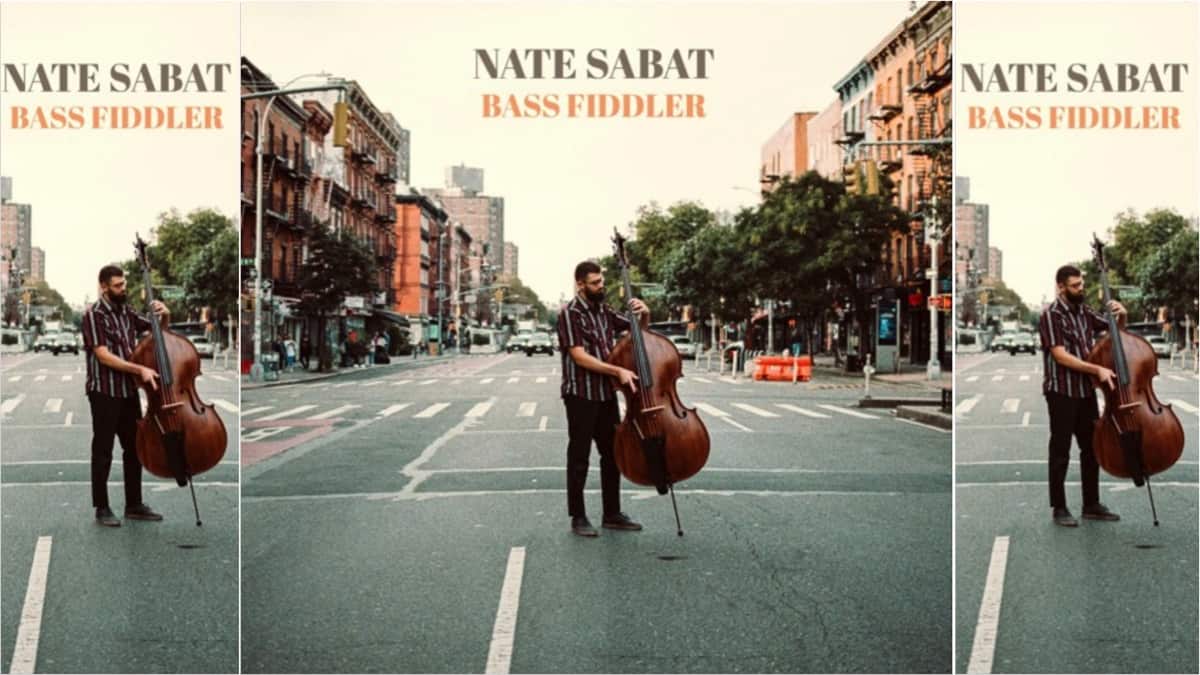
In a thrilling solo debut, bassist Nate Sabat combines instrumental virtuosity with a songwriter’s heart on Bass Fiddler…
The upright bass and the human voice. Two essential musical instruments, one with roots in 15th century Europe, the other as old as humanity itself.
On Bass Fiddler (Adhyâropa Records ÂR00057), the debut album from Brooklyn-based singer-songwriter and bass virtuoso Nate Sabat, the scope is narrowed down a bit. Drawing from the rich and thriving tradition of American folk music, Sabat delivers expertly crafted original songs and choice covers with the upright bass as his lone tool for accompaniment.
The concept was born a decade ago when Sabat began studying with the legendary old-time fiddler Bruce Molsky at Berklee College of Music. “One of Bruce’s specialties is singing and playing fiddle at the same time. The second I heard it I was hooked,” recalls Sabat. “I thought, how can I do this on the bass?” From there, he was off to the races, arranging original and traditional material with Molsky as his guide. “Fast forward to 2020, and I — like so many other musicians — was thinking of how to best spend my time. I sat down with the goal of writing some new songs and arranging some new covers, and an entire record came out.” When the time came to make the album, it was evident that Molsky would be the ideal producer. Sabat asked him if he’d be interested, and luckily he was. “What an inspiration to work with an artist like Nate,” says Molsky. “Right at the beginning, he came to this project with a strong, personal and unique vision. Plus he had the guts to try for a complete and compelling cycle of music with nothing but a bass and a voice. You’ll hear right away that it’s engaging, sometimes serious, sometimes fun, and beautifully thought out from top to bottom.”
While this record is, at its core, a folk music album, Sabat uses the term broadly. Some tracks lean more rock (‘In the Shade’), some more pop (‘White Marble’, ‘Rabid Thoughts’), some more jazz (‘Fade Away’), but the setting ties them all together. “There’s something inherently folksy about a musician singing songs with their instrument, no matter the influences behind the compositions themselves,” Sabat notes. To be sure, there are plenty of folk songs (‘Louise’ ‘Sometimes’, ‘Eli’) and fiddling (‘Year of the Ox’) to be had here — the folk music fan won’t go hungry. There’s a healthy dose of bluegrass too (‘Orphan Annie’, ‘Lonesome Night’), clean and simple, the way Mr. Bill Monroe intended.
All in all, this album shines a light on an instrument that often goes overlooked in the folk music world, enveloping the listener in its myriad sounds, textures, and colors. “There’s nothing I love more than playing the upright bass,” exclaims Sabat. “My hope is that listeners take the time to sit with this album front to back — I want them to take in the full scope of the work. I have a feeling they’ll hear something they haven’t heard before.”
Available online at natesabat.bandcamp.com/album/walking-away














